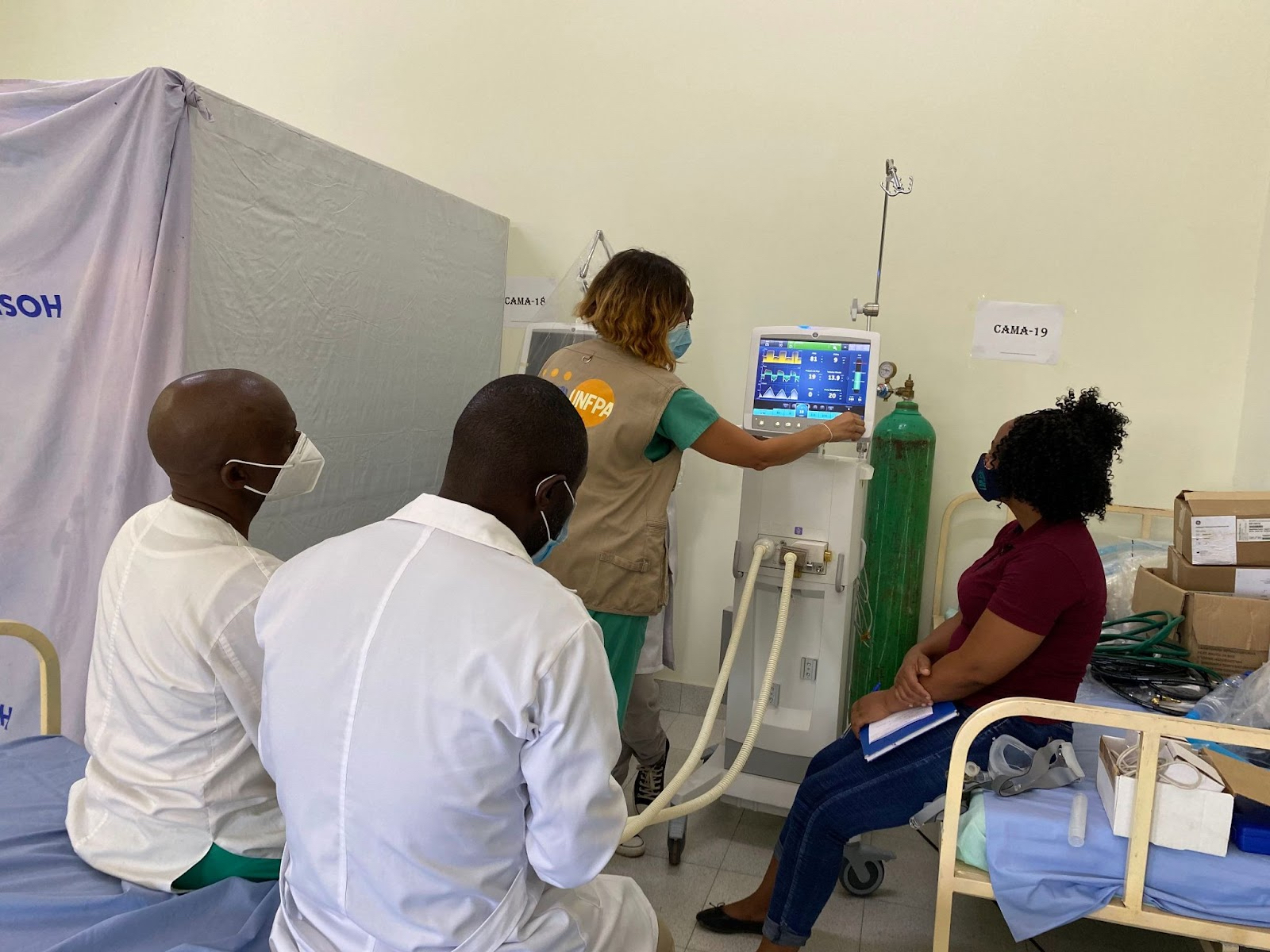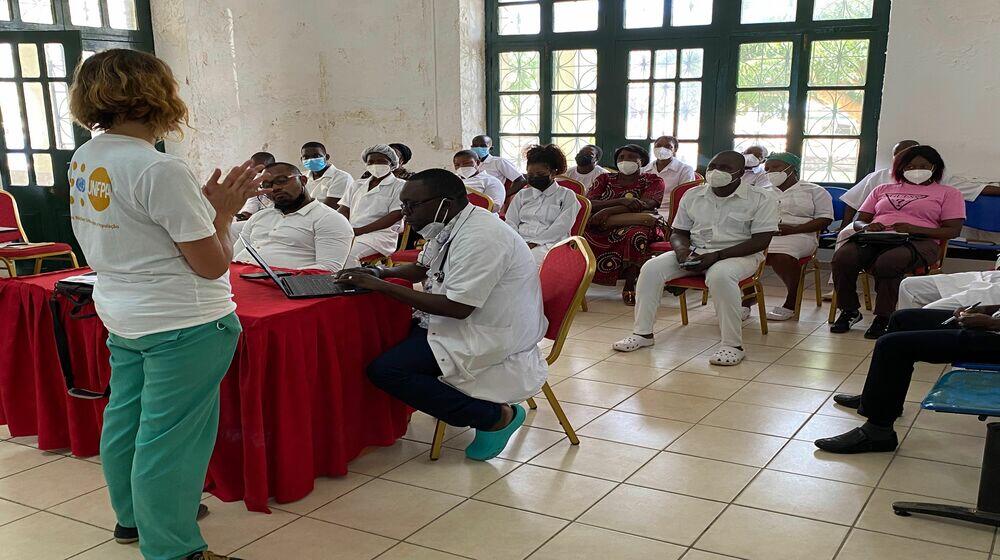A complex health-emergency situation continues to impact Cabo Delgado province, an area experiencing wide-spread conflict and escalating violence. In areas of insecurity, access to health services has become compromised due to the closing of health centers and limited personnel and equipment. Simultaneously, the number of patients seeking care is increasing as populations flee to secure areas, overwhelming already overstretched health systems.

Health Facilities Overwhelmed in Secure Areas
Pemba, the capital of Cabo Delgado, is one of the districts that has received the greatest number of displaced people, just over 150,000 of the estimated 784,000 (data as of February 2022).
“If in one hospital in the past they attended to 100 sick people, this number may have doubled or tripled. The number of medical staff is simply not sufficient,” says Dr. Anibal Nhazime, Chief of the Medical Assistance Department of Cabo Delgado.
At Pemba Provincial Hospital, the demand for consultations has increased, along with the use of emergency wards, intensive care units, and the services required to support women with reproductive and maternal health care. Continued support is needed to ensure that service providers are equipped to meet the urgent and unique needs of those most vulnerable, including women and girls, who may be seeking services ranging from ante-natal care to emergency obstetric support.
When expectant mothers do not have the timely services they require, they become at greater risk of experiencing complications before, during and after birth.

Meeting Increasing Demands
In coordination with local health authorities, UNFPA helped organize training for staff at the Pemba Provincial Hospital, aiming to increase the quality of care in the hospital’s intensive care unit and emergency room.
Dr. Alejandra Bustos, intensive care specialist and UNFPA consultant, trained nurses and doctors in the use of medical equipment including administration of oxygen therapy, ventilation devices and electrocardiogram. In addition, two weeks of in-service training were provided to support and augment the skills of doctors and nurses. Those initial groups trained then began to train other groups. The workshops helped address the acute need for hands-on training and skills to utilize both equipment and the hospital staff’s full potential.
The nurses and doctors who participated in the training then narrated instructional videos on the use of machinery to further disseminate knowledge to additional staff and for training at other facilities. Click here to watch one of the training videos.
Nurse Gelio Eugenio Fonseca, who worked in the COVID-19 isolation center of Pemba Provincial Hospital, learned about the use of ventilators, cardiac monitors, and oxygen concentrators, and narrated a video to explain the use of a non-invasive mechanical ventilator. Click here to watch a video by Gelio.
“Previously I did not know how to use these devices. Now, we are using them with patients in our daily work. After learning to use these devices, I then trained colleagues who had not yet learned. Sometimes I am even brought in to support the intensive care unit or emergency room, because of my newly acquired knowledge of the equipment,” said Gelio.
Building the capacity of healthcare professionals, and equipping health centers with supplies, equipment and information needed, is a key component of UNFPA’s work to ensure the continuation of life-saving sexual, reproductive and maternal health care for women, girls and youth.
This training was made possible through the support of the Government of Austria through a one-year project based in the north of Mozambique.
Nurse Gelio explains the use of a ventilator, in a video shared with colleagues to share knowledge. Video: Dr. Alejandra Bustos/ UNFPA.


